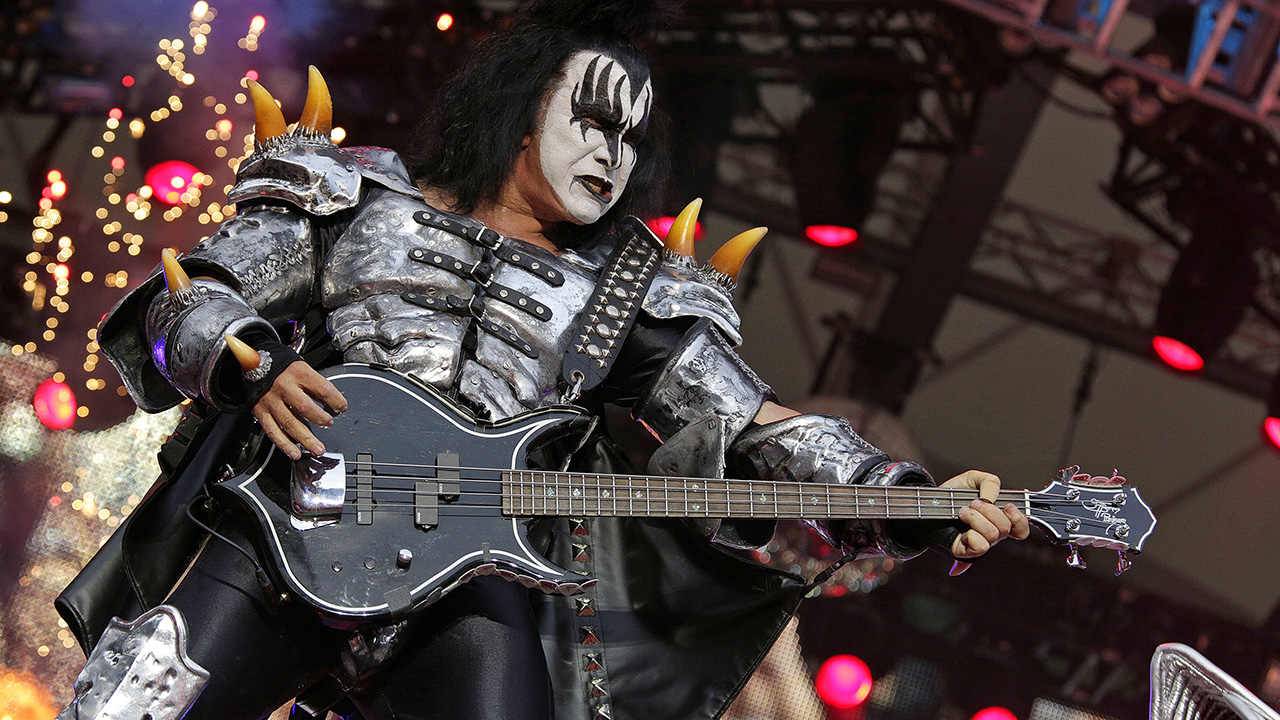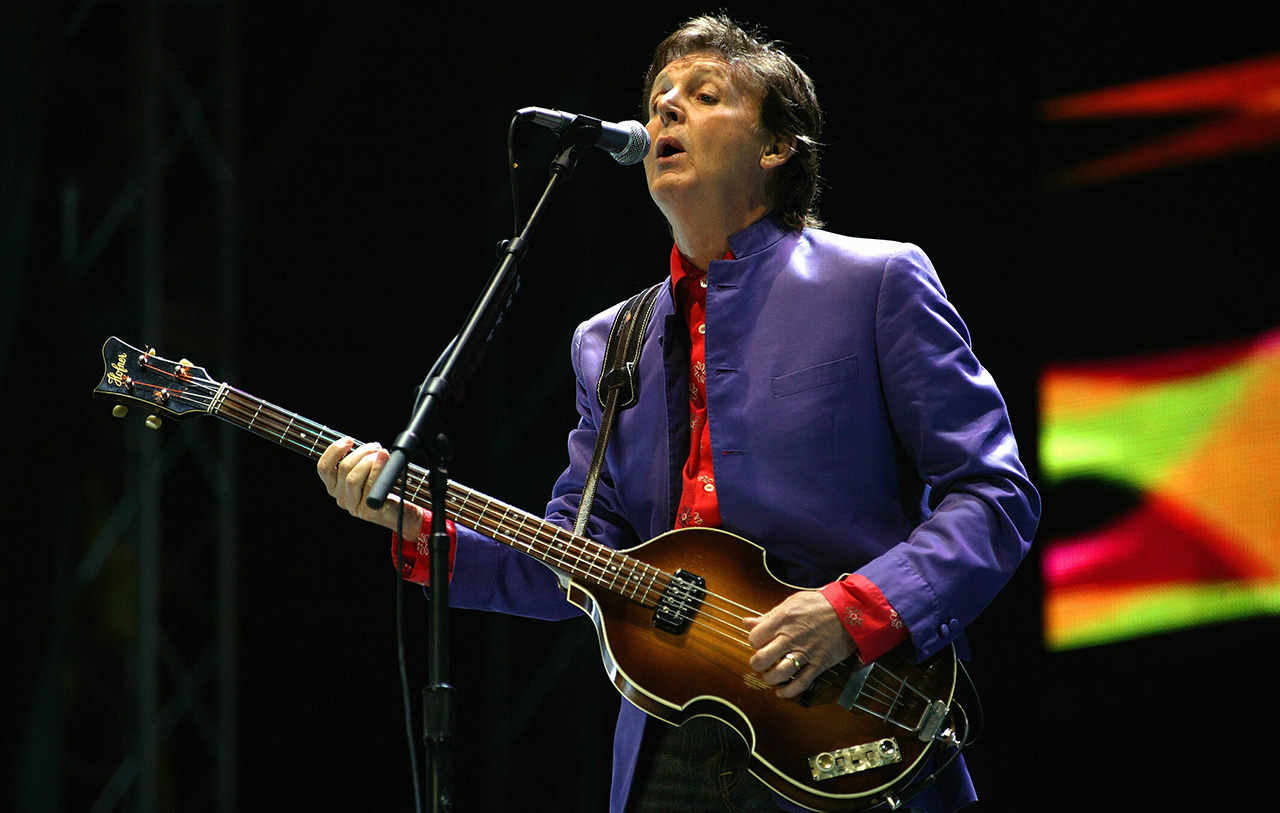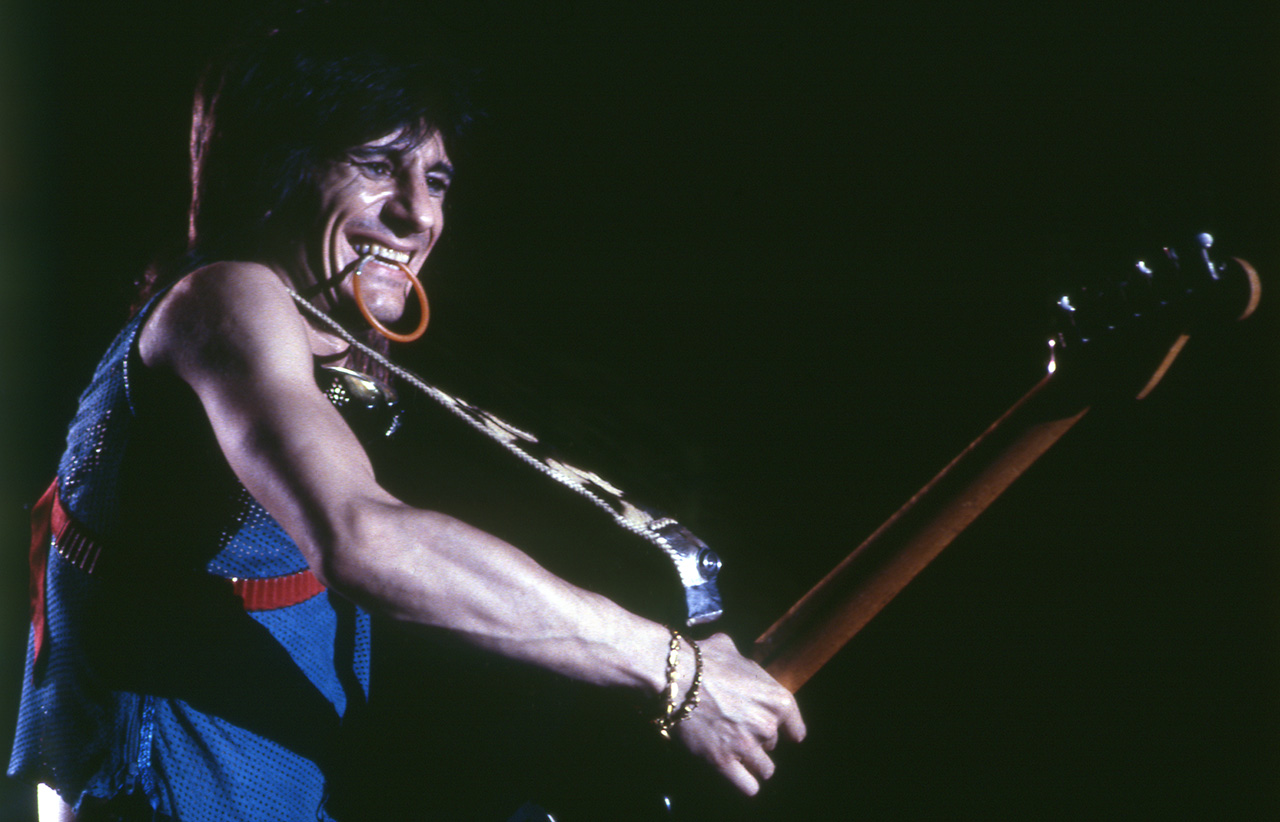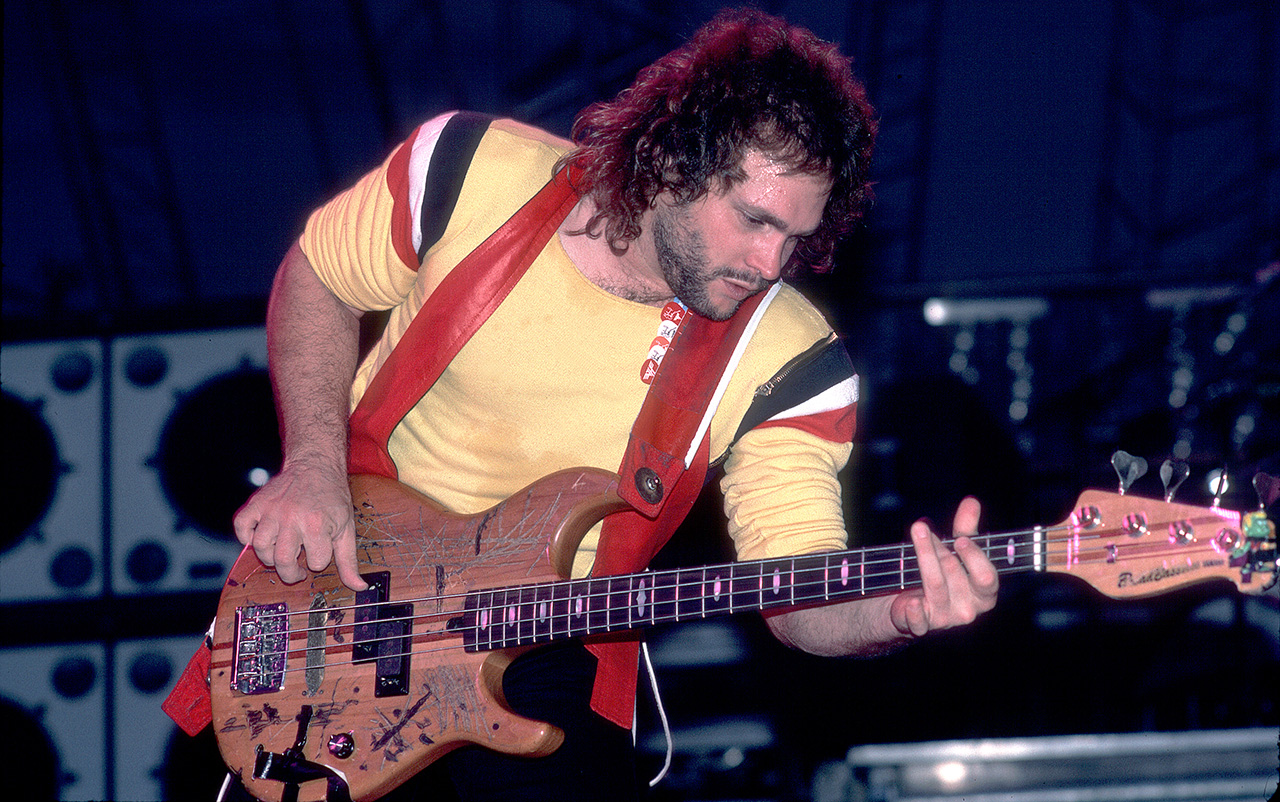“Carol Kaye taught me real hard, telling me, ‘No, no, you’re playing the notes but you’re not playing the feel’”: Gene Simmons names 6 bass players who shaped his sound
The Kiss icon explains how Ronnie Wood is a better bassist than guitarist, why he can’t recall anything John Paul Jones played, and what makes him the Burger King Whopper of bass players

From his earliest days, Gene Simmons intended to keep it simple when it comes to bass playing. “I’ve always been a pragmatist,” he says. “Pragmatism rules.
“When I was a kid I noticed that everybody wanted to be a guitar player, and I did initially learn to play a few chords. But I picked up bass because there were fewer bass players, and it increased my chances of being in a band – which is what I really wanted.”
Amid the kabuki cladding, flash and explosions of Kiss, it was easy to focus on Ace Frehley’s pyrotechnic lead guitar, Peter Criss’ off-the-rails fills, and Paul Stanley’s soaring vocals. But it was Simmons’ basslines that buoyed many of the band’s Klassics.
“The original-cookie cutter design that other bands seem to ignore was this idea that everybody in a band could be a star,” he says. “All those bass parts that became Firehouse and Love Her All I Can – they’re my bass riffs that the guitars would jump on and double up.”
But he continues: “I don’t consider myself, and was never really interested in being, a bass virtuoso. I don’t like showoffs in music. I’m much more attracted to things that are memorable. It’s part of the joy of music for me. There are very few bass players that are memorable.”
Still, without meaning to, he’s influenced droves of would-be four-stringers. “I don’t mean this to be flippant,” he counters, “but I don’t care. The guy who came up with hamburgers is worshipped around the world. If you go to a French cooking school, they’d never cook a hamburger – but who the fuck puts frog legs in their mouth? I’m a Burger King Whopper; that’s all the credibility I would ever want.”
He puts it another way: “You can be a jazz player and be respected by musicians, but the rest of the world doesn’t care. We’re going to play a game: name a jazz player that means something. How about John McLaughlin? He’s a great player.
Get The Pick Newsletter
All the latest guitar news, interviews, lessons, reviews, deals and more, direct to your inbox!
“But here’s a question: can you hum any melody that he’s ever played on a solo? Of course not. All due respect, but that music is intended to show off how well you play, and I don’t care about that. The hardest thing to do is write a good simple song or riff – and it’s really hard.
“There are an awful lot of amazing bass players, like Jaco Pastorius and the jazz guys. Or guys like Flea, who is really good on his instrument. But I can’t remember anything he plays. And I also do not like the sound of a bass being slapped.”
Moving on, Simmons continues: “Clapton – before he went pop, when he was considered ‘God’ – said something very profound: ‘The hardest thing to do is to know what notes to put in a solo, and what notes not to put in a solo.’ Sometimes if it’s shockingly simple, barely moving at all, but I can hum it; that’s what matters, because it’s memorable.”
1. Paul McCartney

“McCartney is probably the most influential bassist for me. The biggest compliment I can give Paul McCartney is that you can pick the vast majority of Beatles songs and you’ll remember what the bass was playing.
“There’s not a lot of movement on bass. The bass locks in with the drums, and that’s the railroad track on top of which the train goes. AC/DC do it probably better than anybody in that style and genre – but Paul McCartney and The Beatles were closer to a string quartet, where the violin and the cello have their own melody.
“While the instruments were doing melodies, the bass was, too. It wasn't tied to the drums. I got inspiration for songs that were hopefully so memorable that it inferred, ‘Well, maybe the guitars should double up and play those bass parts.’
”McCartney would come up with these riffs, and sometimes Lennon would too.”
He’s moving around the fretboard and coming up with his own melodies, which is a lot harder to do
“With all these beautiful songs, you remember the basslines because McCartney’s not sticking to the root. He’s moving around the fretboard and coming up with his own melodies, which is a lot harder to do because you’ve got to be creative and still stay within the harmonic confines of the song.
“So McCartney is hands and feet above the other guys. He’s a triple threat – he wrote songs that were unmatched, became the most successful songwriter of all time, and he wrote them by himself.”
2. Ronnie Wood

“One of the top guys I listened to early on was Ronnie Wood, but only in his stint in the Jeff Beck Group. Those first two records were pivotal. They came out before Led Zeppelin; I heard that stuff and was awed by how free-flowing they were.
“Jeff Beck, of course, soared above everything else, while the bass had its own tone. It took me a while to find the tone that I had in my heart in my head. You have to find the right instrument, the right piece of wood and all that, to get anywhere close.
“So Ronnie Wood – not his guitar playing, which is okay – but his bass playing on both those records is superb. In my estimation he’s a far better bass player than he is a guitar player.
“John Paul Jones from Led Zeppelin was also terrific, but you can’t really hear what he’s playing. The tone is sort of lower, and a muffled kind of R&B bass playing. I can’t really recall in my mind anything John Paul Jones played.
“But when you hear that Jeff Beck Truth record, I distinctly recall the bass playing. Ronnie Wood’s approach to bass playing, and his tone, sounded like a cross between a bass and a guitar.”
3. Felix Pappalardi
“Felix Pappalardi from Mountain had a similar approach on bass, and a tone which was distorted – but there was a lot there. There was Leslie West’s guitar, and keyboards, but I remember Felix’s basslines.
“Again, there’s a lot of really good bass players like that: you hear the riff, and then the bass comes in, and it’s like a train track that locks in with the drums, which is very effective, and you pump that one note. Very seldom do I play like that – the best lines often would become the riff of the song, like Black Diamond.
“Paul wrote that all by himself; I didn’t contribute melody, chords or anything. He played it for me and I said, ‘That’s really good. Let’s run it down once.’ And I came up with the bass riff that descends from the C to the B, A to the F. That melody just came to me, and it became the pivotal hook.
“It was the same when Paul came in with Firehouse and Hotter Than Hell. We liked the bass part so much that the guitar just started playing the bass part. I’ve got too many melodies in my mind; it’s how my mind works.”
4. Chris Squire
“I never paid attention to anybody as far as what I wanted to do. My one piece of advice to anybody is to go into the jungle and find out for yourself what the best path is for you. But another influential guy is Chris Squire from Yes.
“You remember the Yes bass parts, like in Roundabout; you certainly remember what Chris Squire was playing. But strangely, when you hear his solo record, there’s that unique, authentic, personal bass playing and sound. It’s his Rickenbacker bass, distorted and way up in the mix.
“So what does Chris Squire have in common with Ronnie Wood and Paul McCartney? They’re individuals. You can hear what they’re playing; and what they’re playing is iconic. The most memorable thing is often the melody, but it’s that Chris Squire bass lick that stands out.”
5. Carol Kaye
“You can’t say ‘bass playing’ without Carol Kaye. People thought it was an African American gentleman playing bass on those Motown Records – but there was a short Jewish woman doing that. And I knew her, and we played bass together.
“She taught me stuff. She taught me real hard, telling me, ‘No, no, you’re playing the notes but you’re not playing the feel.’ She approached bass – yes – as the low-end of the spectrum. However, with The Beat Goes On, the bassline is the whole song. That’s the most memorable thing, and Carol Kaye came up with that.
“You’ve got to hand it to her. She brought that to whatever record she recorded. You had rooms filled with African American musicians and this little blonde Jewish woman doing all of that.”
6. Michael Anthony

“Michael Anthony from Van Halen never got a lot of attention – but he’s really good. I remember being impressed with him when I produced that first Van Halen demo.
“Of course, with a band like that there’s a lot of room because Eddie is doing his part, especially live. They basically played live at Electric Lady Studios, and Michael – I didn’t tell him to – but he was using an Ampeg, which I also used early on.
“There was that sound, that approach, where Eddie would have a riff, but Michael is playing around it. It’s like people trying to chase a fox and get it in the trap, which is much more interesting to me than walking a straight line where you know where it’s going.”
Andrew Daly is an iced-coffee-addicted, oddball Telecaster-playing, alfredo pasta-loving journalist from Long Island, NY, who, in addition to being a contributing writer for Guitar World, scribes for Bass Player, Guitar Player, Guitarist, and MusicRadar. Andrew has interviewed favorites like Ace Frehley, Johnny Marr, Vito Bratta, Bruce Kulick, Joe Perry, Brad Whitford, Tom Morello, Rich Robinson, and Paul Stanley, while his all-time favorite (rhythm player), Keith Richards, continues to elude him.
“When I first heard his voice in my headphones, there was that moment of, ‘My God! I’m recording with David Bowie!’” Bassist Tim Lefebvre on the making of David Bowie's Lazarus
“One of the guys said, ‘Joni, there’s this weird bass player in Florida, you’d probably like him’”: How Joni Mitchell formed an unlikely partnership with Jaco Pastorius




![[from left] George Harrison with his Gretsch Country Gentleman, Norman Harris of Norman's Rare Guitars holds a gold-top Les Paul, John Fogerty with his legendary 1969 Rickenbacker](https://cdn.mos.cms.futurecdn.net/TuH3nuhn9etqjdn5sy4ntW.jpg)







